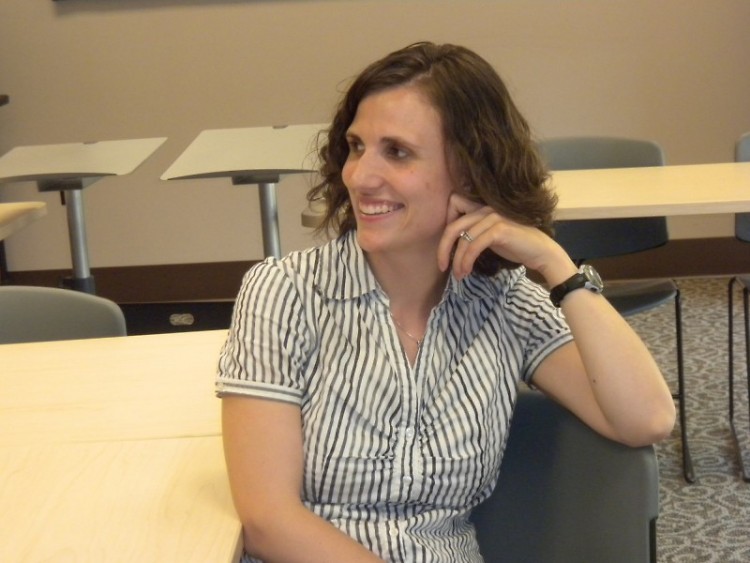Passionate is the first word Elizabeth Stoddard, Director of Advocacy at the Fair Housing Center of West Michigan will use to describe herself. Stoddard is passionate about Fair Housing and the Grand Rapids area.
Stoddard has been the Director of Advocacy at the Fair Housing Center of West Michigan for several years now. The Lowell native graduated from Notre Dame and came back home to Grand Rapids. She wished to give back to the community that she grew up in.
While job hunting, a family member brought an advertisement in the paper to her attention. The Fair Housing Center of West Michigan was looking for an operations manager.
“At the time, I knew nothing about Fair Housing,” Stoddard says, “But I knew I wanted to work in nonprofit.”
After looking at their mission statement, Stoddard felt like the association would be a good fit for her and applied. Stoddard has been with the Fair Housing Center of West Michigan for the last seven years.
But Stoddard has hopes that maybe one day her position won’t be needed.
“I have a job because people’s housing choices are being impeded. Every day we are working to put ourselves out of work.”
Established in 1980, the Fair Housing Center started as a local project. In 2006, The Lakeshore Fair Housing Center suggested a merge, and the Fair Housing Center changed its name to reflect its larger service area. The Fair Housing Center of West Michigan is funded with a combination of local city grants and federal support. Stoddard and the six other employees at the Fair Housing Center of West Michigan service 12 counties in the area. They utilize five tools to help them achieve their goals: education, outreach, research, advocacy and enforcement.
“What is most challenging about our work is that sometimes there is still a seeming lack of awareness to the fair housing laws,” Stoddard says. But the Fair Housing Center of West Michigan is doing everything they can to change that.
"Elizabeth has helped implement systems and processes that have helped make the Fair Housing Center of West Michigan so much more effective as our service area, staff and budget has grown. She has that very unique combination of passion for justice and a real grasp of how important data and research is to seeing the her goals are achieved," says Nancy Hayes, Executive Director of the Fair Housing Center of West Michigan.
“We are really unique compared to other fair housing centers in how much we focus on education and outreach,” Stoddard says. She says that as a center they choose to avoid litigation as a means of funding themselves. With the support of the City of Grand Rapids and several other partners, they can focus on the education to hopefully prevent future discriminatory practices.
“The work we do contributes to a stronger fabric of our society and a more open and welcome community where people feel valued, so that they can, in turn, invest their value in the city. That’s what’s important to me," Stoddard says.
And while progress is being made, Stoddard is aware that the future still holds some challenges.
Stoddard says that systemic discrimination, or institutional practices of discrimination, will be some of the biggest challenges the Fair Housing Center will face in the future.
But she is optimistic about Grand Rapid’s chances of overcoming these obstacles. She encourages citizens to be simply be aware of Fair Housing laws and to consider volunteering to help as a tester for their organization.
“We are a welcoming, strong, diverse, vibrant community," says Stoddard. "Those qualities are what we are going to need to be sustainable as a community and to keep moving forward.”
The Rapidian, a program of the 501(c)3 nonprofit Community Media Center, relies on the community’s support to help cover the cost of training reporters and publishing content.
We need your help.
If each of our readers and content creators who values this community platform help support its creation and maintenance, The Rapidian can continue to educate and facilitate a conversation around issues for years to come.
Please support The Rapidian and make a contribution today.

